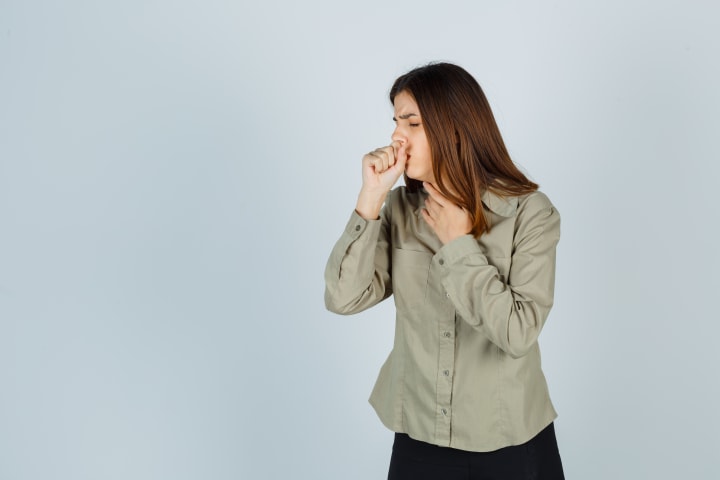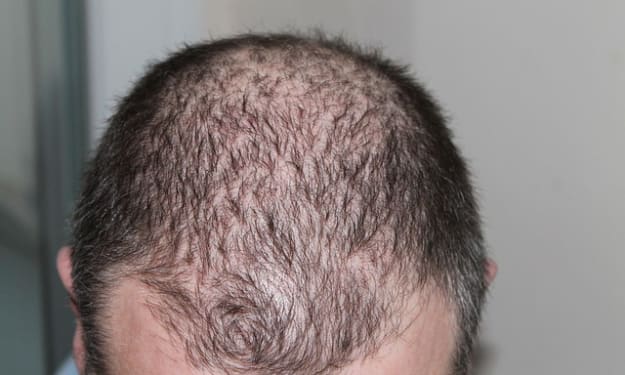Practical Home Remedies for Coughing
- Anyone can try

Home Remedies for Coughing

Coughing can be inconvenient at any time of day or night. Both your regular routine and your essential nighttime sleep are disrupted. Fortunately, you won't need to rush to the pharmacy in the wee hours of the morning if you know how to stop coughing without medication.
It's not all that difficult to get rid of a cough unless it's brought on by a severe medical condition or a complication of another issue you already have. However, using safe home remedies as directed will significantly lessen how bad your cough is.
What Causes Coughing?
There are numerous causes of coughing. Here are the most common reasons:
● Respiratory tract infection (RTI) – cold, pneumonia, flu, bronchitis, and sinusitis
● Asthma
● Gastroesophageal reflux disease (GERD)
● Pertussis (Whooping Cough/Diptheria)
● Tuberculosis
● Foreign body
● Dry mouth
● Swallowing difficulties
● Angiotensin-converting enzyme inhibitors (Drugs used for diabetes and high blood pressure)
● Lung tumors
● Allergies
● Pollution-related pathogens
Symptoms of Coughing

In addition to a cough, other common symptoms include:
● Cold
● High temperature
● Chills
● Chest pain
● Headache
● Fatigue
● Difficulty in breathing
● Blocked nose
● Disrupted sleep
While the cough is short-lived, the problem is typically transient and not dangerous. It's critical to recognize the type of cough you have because a recurrent or persistent cough could be a sign of major health issues. The list of these types is below.
Types of Coughing
Coughing can be categorized as:
● Acute Cough – when it occurs for less than 3 weeks
● Chronic Cough – when it continues for more than 8 weeks (in which case, stop reading this and go see a doctor!)
● Subacute Cough – lasts anywhere between 3 and 8 weeks
● Productive Cough – if you cough up sputum
● Dry or Nonproductive Cough – if there is no expulsion of sputum
● Nocturnal Cough – occurs only at night.
As we've already seen, coughing can have a variety of causes. Antibiotics and plenty of gentle, loving care can swiftly treat some of these reasons, but long-term care and even hospitalization are often required for more serious ones.
With the following therapies, you can say goodbye to the ensuing cough when the underlying reasons are common, like respiratory infections.
When the underlying causes are common, like respiratory infections, you can say goodbye to the resulting cough with the following treatments.
How to Stop Coughing Using Home Remedies

1. Essential Oils
2. Pineapple Juice
3. Honey And Lemon
4. Honey And Cinnamon
5. Ginger, Peppermint, And Honey
6. Apple Cider Vinegar
7. Vicks On Feet
8. Tea
9. Elderberry
10. Raw Onion On Feet
11. Buckwheat Honey
12. Thyme
13. Salt Water Gargle
14. Turmeric Milk
15. Black Pepper
16. Baking Soda
17. Basil
18. Lemongrass
19. Soup
20. Fenugreek
21. Grapes
22. Guava Leaves
23. Garlic
24. Jaggery
25. Almonds
26. Carrot Juice
More information >> Home Doctor (Practical Medicine Guide)
1. Essential Oils for Cough

You Will Need
• A few drops of eucalyptus oil OR tea tree oil OR thieves oil
What You Have To Do
1. Apply your preferred essential oil to your neck and sinuses. You can also apply a few drops to your chest.
How Often You Should Do This
• Repeat this twice a day, especially before going to bed.
Why This Works
A cough, headache, body soreness, and clogged nose can all be promptly relieved with eucalyptus oil because it is an expectorant and has antimicrobial characteristics.
A versatile antibacterial medication called tea tree oil can treat the problem.
On the other hand, thieves oil, which is a mixture of lemon, cinnamon bark, clove, rosemary, and eucalyptus essential oils, has more advantageous characteristics.
This mixture can provide relief for your throat by acting as an expectorant, an antibacterial, and an anti-inflammatory agent.
2. Pineapple Juice for Coughing

You Will Need
● 1 cup pineapple juice
● 1 1/2 tablespoons honey
● A pinch of salt
● A pinch of black pepper powder
What You Have To Do
1. Mix the honey and spices with the pineapple juice.
2. Drink one-fourth cup of this.
3. Store the rest in the refrigerator.
How Often You Should Do This
● Drink this three times a day.
Why This Works
The bromelain present in pineapple juice reduces coughing, inflammation in the respiratory tract, and nasal mucus.
3. Honey and Lemon for Cough

You Will Need
● 2 tablespoons honey
● 1/2 teaspoon lemon juice
● A cup of hot water
What You Have To Do
1. Mix the honey thoroughly with the hot water.
2. Add the lemon juice and stir well. Drink this concoction.
How Often You Should Do This
● Have this mixture once in the morning and once at night.
Why This Works
Honey is a mild but powerful cough suppressant. Its demulcent and calming effects can instantly stop persistent coughing. Lemon juice's vitamin C promotes a speedy recovery from infection. Children's coughs can also be treated with this treatment.
4. Honey and Cinnamon for Cough

You Will Need
● 1 tablespoon honey
● A pinch of cinnamon powder
What You Have To Do
1. Heat the honey till it becomes slightly runny and add the cinnamon powder to it. Mix it well.
2. Once the mixture cools down, ingest it.
How Often You Should Do This
● Use this yummy cough syrup 2-3 times during the day to keep the cough under control.
Why This Works
When combined with honey, cinnamon works like a charm to treat persistent coughs. It reduces sinus congestion and calms irritated respiratory passages. Children adore the flavor of this combo, and it is completely safe for them.
5. Ginger, Peppermint, and Honey For Cough

You Will Need
● 3 tablespoons chopped ginger
● 1 tablespoon dried peppermint
● 1 cup honey
● 4 cups water
What You Have To Do
1. Take the water in a pan and add the ginger and peppermint to it.
2. Boil this mixture until it reduces to half of its original volume.
3. Let it cool down. Add the honey to it and mix well.
4. Take a tablespoon of this herbal blend.
The rest of the mixture can be stored in an airtight container in the refrigerator for about three weeks.
How Often You Should Do This
● Have this herbal remedy once every 3-4 hours.
Why This Works
Strong antibacterial capabilities exist in ginger. It functions as a natural painkiller and cough suppressant whenever eaten with honey.
As peppermint is an antibacterial agent, it aids ginger in removing the infection. Moreover, it relieves nasal congestion and throat irritation.
6. Apple Cider Vinegar for Cough

You Will Need
● 2 tablespoons of apple cider vinegar
● A glass of warm water
What You Have To Do
1. Add the vinegar to the water and gargle with this.
2. Do not ingest this liquid.
For further cough treatment, take a teaspoon of apple cider vinegar and two teaspoons of honey.
How Often You Should Do This
● Gargling with this once or twice every day.
Why This Works
The health advantages of apple cider vinegar are endless. It can be used to calm a persistent cough (14). We benefit from its antibacterial and pH-balancing characteristics when it comes to curing a cough. White vinegar or red vinegar can be substituted for ACV if you don't have any on hand.
Note
You can add lime juice or salt to the dish to mask the vinegar's flavor if you don't like it.
7. Tea for Cough

You Will Need
● 1 tablespoon oregano tea OR licorice root tea OR hibiscus tea (or a tea bag)
● A cup of boiling water
What You Have To Do
1. Brew some fresh herbal tea with the herb you have available at home by soaking it in hot water for a few minutes.
2. Strain and sip on this tea.
How Often You Should Do This
• Have 2-3 cups of herbal tea every day until the cough goes away.
Why This Works
Drink energizing herbal teas and put an end to your cough. Thymol, an ingredient in oregano, helps to break up mucus and phlegm that is obstructing your nasal passages, relieving coughing (15). The anti-inflammatory effects of licorice root can help to clear your sinuses (16). Vitamin C, a key vitamin needed when the body is attempting to fight the respiratory infection and recuperate, is abundant in hibiscus tea (17).
Practical Medicine Guide - Home Doctor: Order Now >>
Dietary Restrictions
● Dairy and dairy products
● Coffee, carbonated beverages, and other caffeinated beverages.
● allergies frequently present in foods including shellfish, yeast, almonds, eggs, soy, and others
● processed foods, such as packaged snacks and chips
● white pasta and white bread
● fried and spicy food
To quickly recover from a cough, avoid them as much as you can.
When to see a doctor

If the coughing becomes severe,
The following are some warning signals that a cough is getting worse
● shortness of breath
● a cough that produces blood
● weight loss
● a low-grade fever lasting longer than 1 week
● a high fever
● risk factors for HIV or tuberculosis





Comments
There are no comments for this story
Be the first to respond and start the conversation.